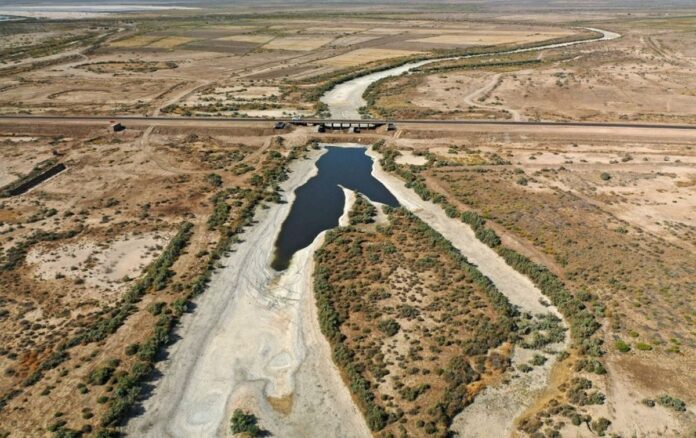Dr. Marwan Salem Al-Ali – University Professor at the College of Political Science, University of Mosul.
Introduction
Water is the pillar of life, livelihood, and the key to sustainable development, as it is essential for agriculture that feeds on humans, as the enjoyment of water is a basic human right and an important real indicator of human growth, The issue of water has become an urgent geopolitical and social issue, and in some countries, it has become a crisis that threatens their national security. Since the beginning of the twenty-first century and to the present day, all research and studies on the Middle East and its future have indicated that the actual crisis that will face the people of the Middle East in the near term is the crisis of water resources, It is very obvious that Iraq is at the forefront of the parties affected by it because the sources of the Tigris and Euphrates rivers are located outside its territory and extend to not a few distances in Turkish territory.
It has become certain – based on the data of the current reality – that Iraq has entered into a major and serious water crisis that threatens its food security and its regional position, due to the low rainfall rates for the current year 2022, and the past years, with a significant decline in the number of water resources entering Iraq, especially after the decline in the levels of the Tigris and Euphrates rivers, as a result of neighboring countries’ control of Iraq’s water share, as well as the country’s entry into a cycle of climate change that caused high temperatures, And the lack of rainfall, with a significant increase in evaporation, which contributed significantly to the high salinity of the soil, and the spread of desertification on a large scale, as official statistics indicate that the rate of desertification amounted to about (69%) of Iraq’s agricultural area, which made Iraq occupy an advanced position in the list of countries most affected by the climate changes taking place.
The water problem in Iraq is the imbalance of water in terms of increased water needs against a decrease in the water supply needed to meet different areas of life. It is estimated that the discharges of the Tigris and Euphrates rivers will continue to decline over time and will dry up completely by 2040, meaning that Iraq’s water problem is growing and growing over time.
What has exacerbated the severity of the crisis and its effects in Iraq are the unfair water policies adopted by neighboring countries and their construction of dams on the headwaters of the Tigris and Euphrates rivers, and some tributaries of the rivers that feed Iraqi territory, which led to reducing Iraq’s water share used to divide water with upstream countries, thus making Iraq the biggest loser in the regional water equation.
In order to be fairer, we must not only hold neighboring countries responsible for the deterioration of the water resources sector in Iraq, because in the end they are sovereign countries on their land, and they have the right to maintain their food security and have their own water plans, but also the responsibility lies with successive Iraqi governments that neglected the water resources sector, and was preoccupied with political disputes and partisan conflicts, and ignored the necessary solutions to address this crisis, and try to alleviate the burden of the Iraqi citizen.
The water crisis or scarcity in Iraq is fundamentally a crisis of strategic management and a crisis of the management of this water resource, The continued shortage of water resources will expose Iraq to major problems not only at the level of the agricultural sector and livestock but also to the decrease in the supply of potable water.
Therefore, the next Government and Parliament have a national and historical responsibility to take serious steps towards strengthening the protection of Iraq’s water resources internally and externally and preserving them from waste and loss, because they belong to the people, and on them depends the fate of the country.










